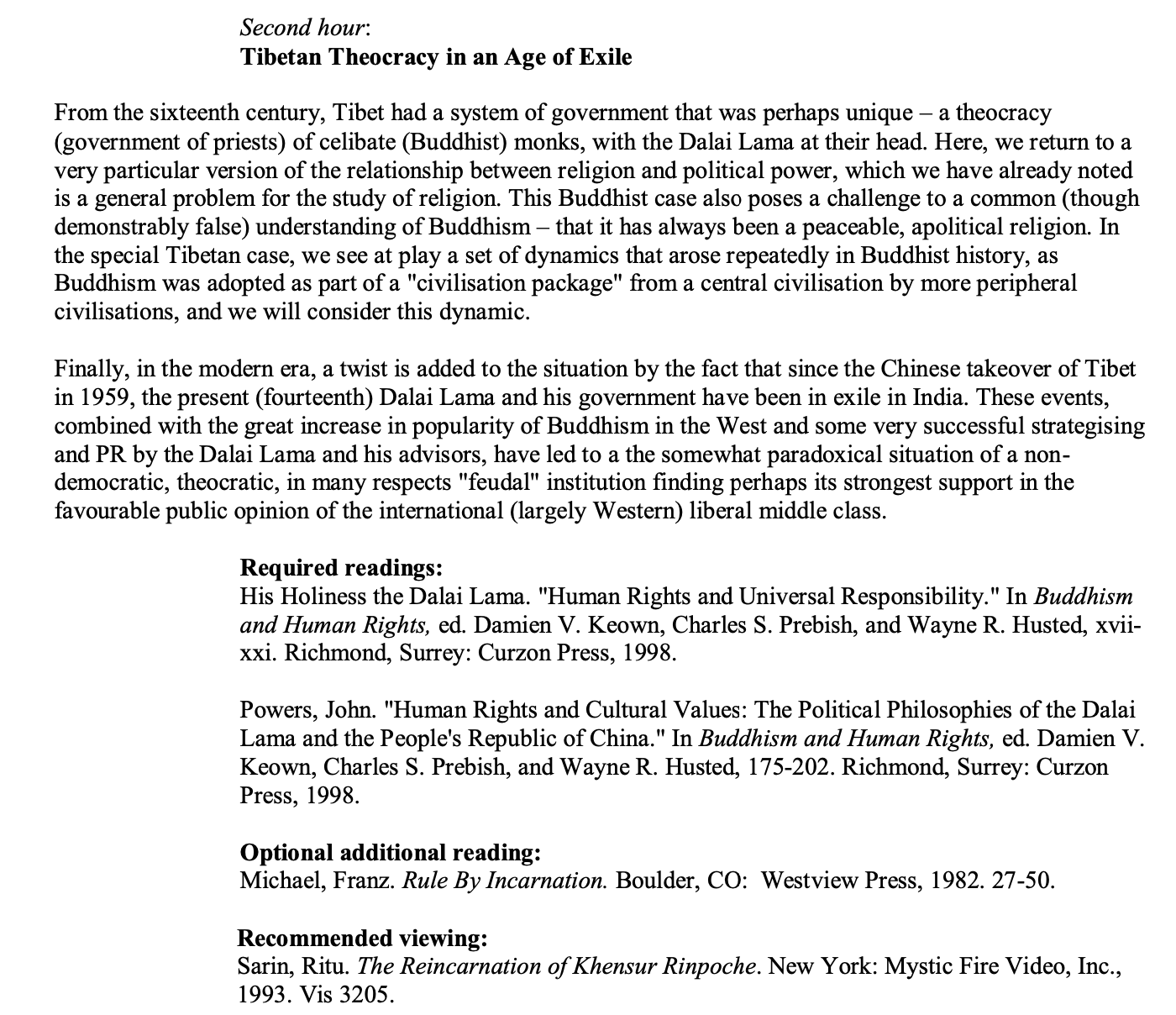

deleted by creator


deleted by creator

Yeah exactly, I was more responding to the idea that Buddhist is about “self improvement” but I did want to specify that the collective action was for salvation. Although I do think that the religious attitude that you rely on others for your salvation, and you see the equal potential in everyone to one day reach salvation can at least set the groundwork for an egalitarian political consciousness, even if the religion itself retains sexist and classist structures

The lecture wasn’t on my personal opinion about the presence of China in Tibet, it was taking the perspective of the Dali Lama on the matter and exploring his response

That’s he point - he doesn’t care about “imperialism,” he cares that China is occupying Tibet, and so by presenting Buddhism in a very particular way, is appealing to the west to gain political sympathies while upholding western political and cultural imperialist powers

This lecture was kind of relevant. It wasn’t so much about secular Buddhism per se, but rather about way that Buddhism has been presented to popular audiences in the west by the Dali Lama. Even though Tibetan Buddhism isn’t at all an ‘atheist philosophy,’ the Dali Lama has played a big role in uplifting such western orientalist sensibilities, both as a response to Chinese imperialism in Tibet, and as an appeal to western international hegemonic powers



Body fascists, rise up

Bodhisattvas forego liberation from the cycle of samsara in order to ensure everyone else is able to reach liberation, showing a commitment at least to collective action for salvation
deleted by creator
Aside from the tips on eating more satiating foods like protein, healthy fats and fibre, the book Intuitive Eating has a section on strategies you can use to recognise, and stop the habit of using food as an emotional coping mechanism. I heard the 4th edition took out a bunch of stuff that extremely sensitive people found fatphobic, so I’d recommend going to the 3rd edition (you can find a free copy on anna’s archive)
I don’t really hear about ‘god’s plan’ outside of the context of failure or loss, in which is it invoked in a consolatory and comforting manner. I think it has to do with the notion of discerning your vocation without forcing yourself into a role not suited for you, so it’s concerned with the use of an individual’s specific talents or ‘gifts’ to help the world, but not necessarily a ridged predestined plan. I’m sure more Calvinist communities might use it more in the predestination manner though…
deleted by creator